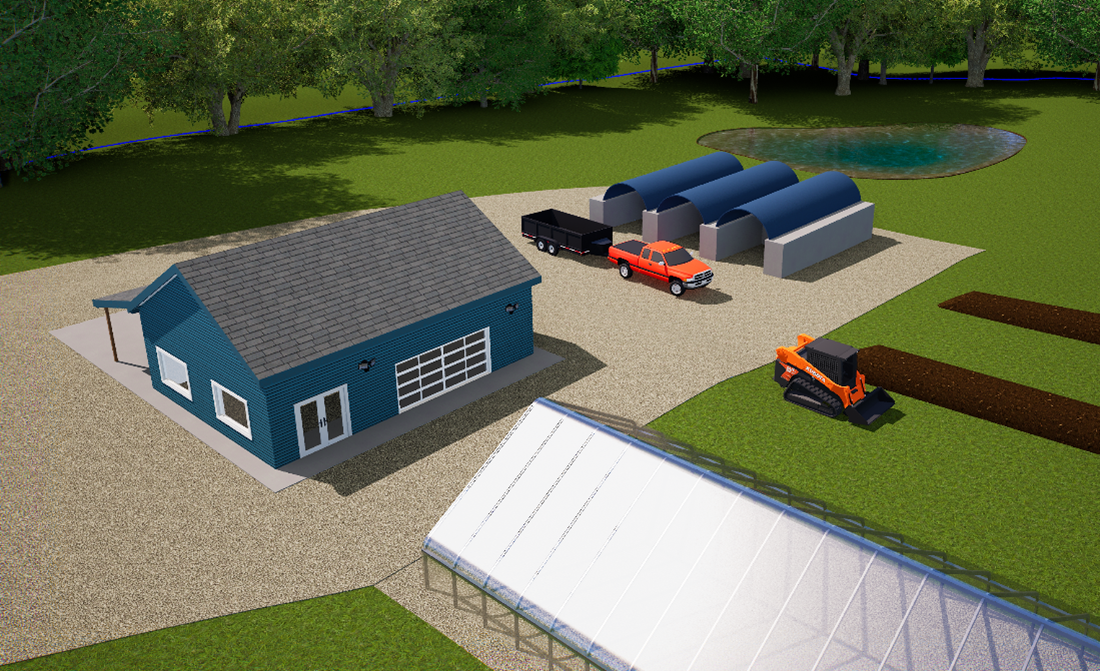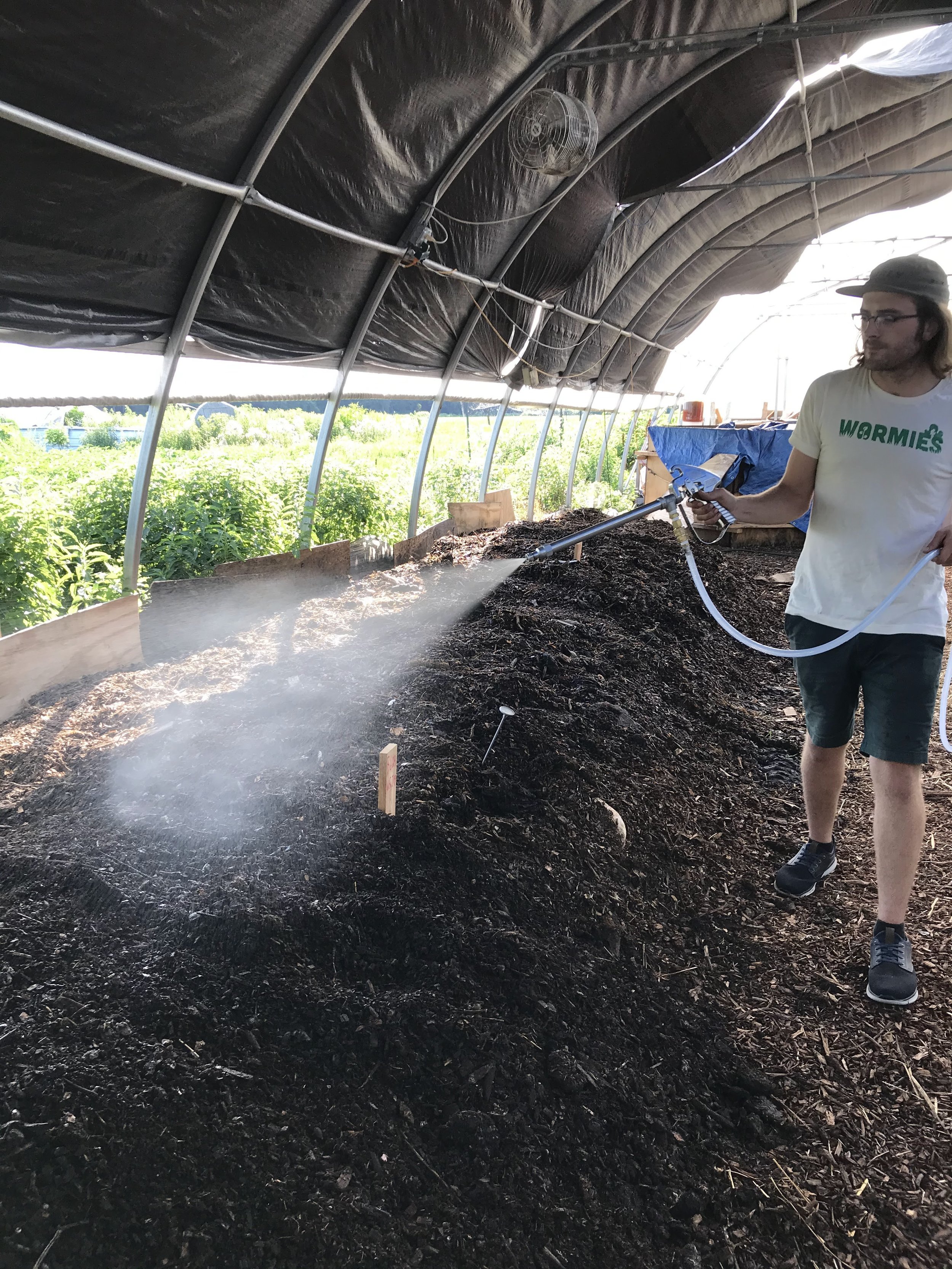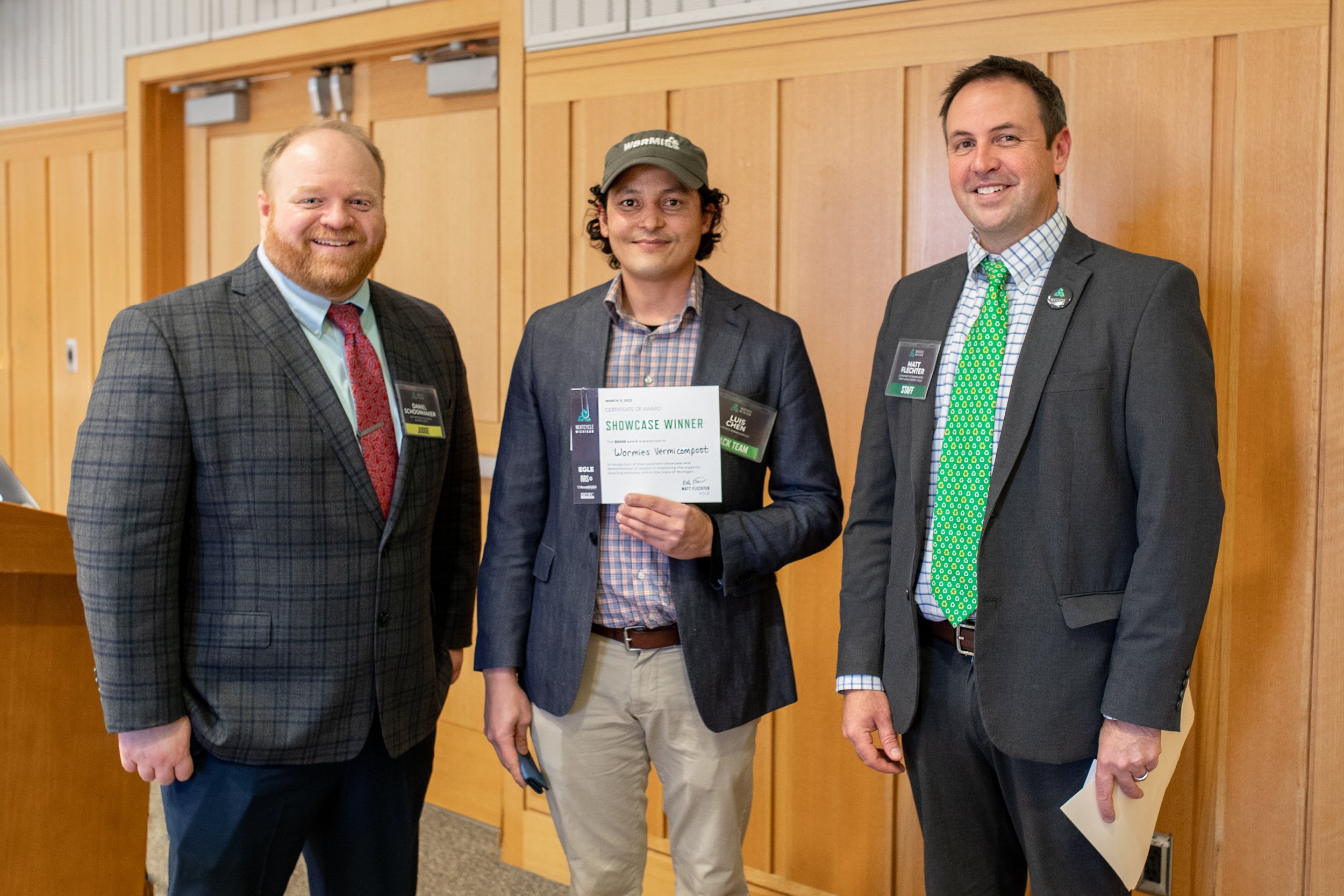Managing Community Food Waste in Grand Rapids
Most people toss food in the trash every day, whether because the food has spoiled, or it is not something typically consumed like banana peels. These scraps—part of the “organic” material stream in industry terms--are buried in landfills where they rot and produce methane, a potent greenhouse gas. In 2018, The Environmental Protection Agency estimated that 63.1 million tons of food waste were generated that year in the United States, and almost 60% of that was sent directly to landfills.
One way to sustainably manage food scraps and yard waste is through composting – nature’s way of recycling organic matter. According to the Michigan Gap Analysis, an estimated one million tons of organic waste - mostly food scraps - are available for recovery each year in the state. Wormies, a NextCycle Michigan FLOWS (Food, Liquids & Organic Waste Systems) track alum team, is in the vanguard scaling food scraps diversion in Michigan.
Large Scale Vermicomposting
Wormies is a Grand Rapids-based business, specializing in converting food and yard waste into premium compost and compost tea, soil products enhanced with their worm castings, aka “vermicompost.” They start the process by partially composting the collected food scraps thermophilically (using heat-loving microorganisms) then shift the material to vermicomposting (using worms to convert organic materials to valuable soil amendments). Their model is a “local-local-local community composting operation” – food waste is sourced from the local community, composted in a local facility, and used by local businesses.
Micro-Hauling
Wormies is a minority-owned business and one of only 2 food scrap composting companies in the Grand Rapids region. They collect food scraps from over 600 residential and commercial customers. They offer a unique micro-hauling solution, using five-gallon buckets, a size that fits the needs of most residential customers. With the help of NextCycle Michigan, they have now increased their hauling capacity to serve an additional 2,500 customers.
More than half of the food waste collected by Wormies is delivered to local farms in the area to be composted and used by those farmers. Wormies operates as a “community composting farm” supplying a portion of the compost they produce at Wormies Farm to their collection customers and donating soil products to urban community gardens.
In 2022, Wormies joined the NextCycle Michigan FLOWS accelerator cohort to scale their operations and meet the growing demand for both their products and services. They worked with industry experts at Resource Recycling Systems (RRS) to capitalize their expansion and develop a robust growth strategy. The NextCycle team identified additional feedstock sources and end markets including local food pantries, farmers markets, CSAs, commercial generators, and cannabis growers. The growing business also needed infrastructure development and processing equipment at their newly acquired 13-acre site.
The Result
NextCycle coaches helped Wormies to develop a business plan and pitch. When Luis Chen, founder and owner of Wormies, approached the township about permits for a facility at the company’s new site, township personnel were unfamiliar with food-scraps composting and vermicomposting and had no framework for making permitting decisions about such facilities. "Through NextCycle, I was put in contact with Aaron Hiday, the Compost Program Coordinator at EGLE (Environment, Great Lakes, and Energy). EGLE helped the township create an ordinance, and they worked really hard,” said Chen.
“After looking at the business plan that I created with NextCycle and their new ordinance, the township officials were excited. They understood that, okay, the scale that Wormies is proposing is not going to be risky to have in our township. Township officials are now working within the community to educate and inform residents on the benefits of Wormies for the township.”
At the conclusion of the FLOW Accelerator, Wormies won the NextCycle Showcase Award with its cash prize of $8,000. They were also awarded a $266,000 EGLE Recycling Infrastructure grant.
Since taking part in the NextCycle cohort, Wormies developed an engineered site plan and is continuing to work through the approval process with the township.
As Wormies’ business grows, so will its environmental and economic impacts. Increased recovery of organic matter through composting dramatically decreases greenhouse gas emissions compared to landfilling. The use of compost in agriculture reduces the need for conventional fertilizer while also improving soil and watershed health. Looking ahead, Wormies expects to grow
· From processing 30 cubic yards of incoming organics per month to 200 cubic yards
· From 450 collection service members to 2,500
· From $6,500 a month in collection service revenue to $35,000 a month, and
· From $2,500 a month in product sales to $40,000 a month.
According to Chen, Wormies’ vermicompost is especially valued by craft growers, medium-sized operations, organic farmers, and cannabis growers. The market for soil products among Michigan cannabis caregivers alone is $150,000,000 annually and it is currently being supplied by out-of-state companies. By successfully scaling their business, Wormies has significant potential to increase the state’s economic output. Chen’s vision is to have these “community composting farms” in every township: lower-investment, low-risk operations and welcoming places for the community to connect to the soil and be a part of the food-compost-grower loop.
Learn more about Wormies by visiting www.thewormies.com.



